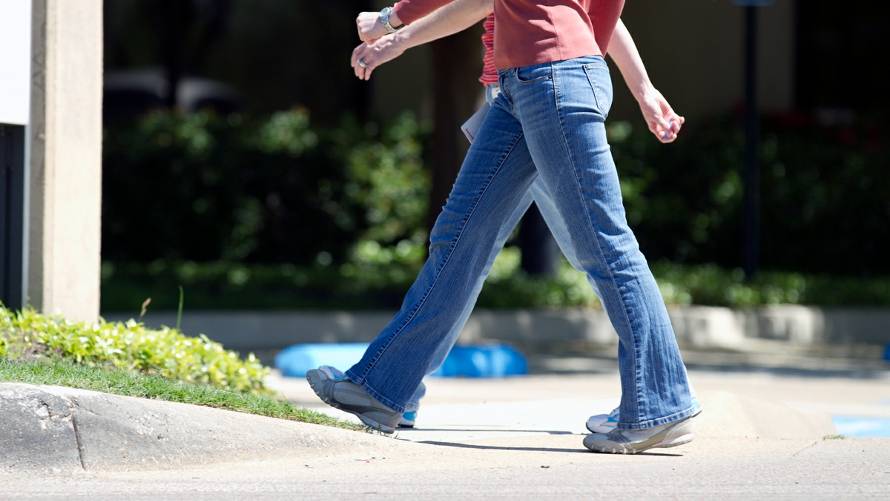Physical activity is one of the best ways to improve overall health and manage stress. Unfortunately, 1 in 4 adults in the U.S. are sedentary for more than eight hours each day, according to the U.S. Centers for Disease Control & Prevention (CDC). This can have negative consequences on physical and mental health.
The American Heart Association, the world’s leading nonprofit organization focused on heart and brain health for all, established National Walking Day in 2007. Celebrated annually on the first Wednesday in April, National Walking Day encourages people to move more throughout their day. Communities across the country are invited to take a walk – whenever, wherever it suits them – on Wednesday, April 3 and raise awareness of the benefits of movement.
“Walking is a simple way to add more physical activity to your day and the benefits go beyond physical health,” said Monik Jiménez, ScD, SM, FAHA, American Heart Association volunteer and instructor at Harvard T.H. Chan School of Public Health. “Getting the recommended amount of physical activity each week, which can be achieved through walking, is linked to a lower risk of diseases, stronger bones and muscles and improved mental health.”
“For a century, the American Heart Association has worked to save lives, including the promotion of public policies and programs that create safe, healthy communities for people to be active and live long, healthy lives,” said Eduardo Sanchez MD, MPH, FAHA, the American Heart Association’s chief medical officer for prevention. “As we celebrate the organizations 100th birthday, our future is about improving yours. Taking a walk is one way people across the country can experience the impact of this lifesaving work.”
To participate in National Walking Day, the American Heart Association offers these tips:
- Ask colleagues, friends or family to join you.
- If you work remotely, take a conference call on the go.
- If you have a pet, get moving together! Walking is a win-win for the health of you and your pet.
- Take a family stroll after dinner.
- Share a picture on social media using #WalkingDay
Physical activity such as walking can help reduce stress, improve mood and sleep, and lower the risk of diseases according to the U.S. Department of Health and Human Services physical activity guidelines. For adults, the American Heart Association recommends at least 150 minutes per week of moderate intensity aerobic activity such as brisk walking or gardening, or 75 minutes of vigorous intensity aerobic activity such as running or aerobic dancing, or a combination of both intensity level activities. In addition, the Association recommends two days of moderate-to high-intensity muscle strengthening activity weekly, such as resistance training.
For more tips about getting and staying healthy, visit the American Heart Association’s Healthy for GoodTM initiative at heart.org/movemore.
Additional Resources:


